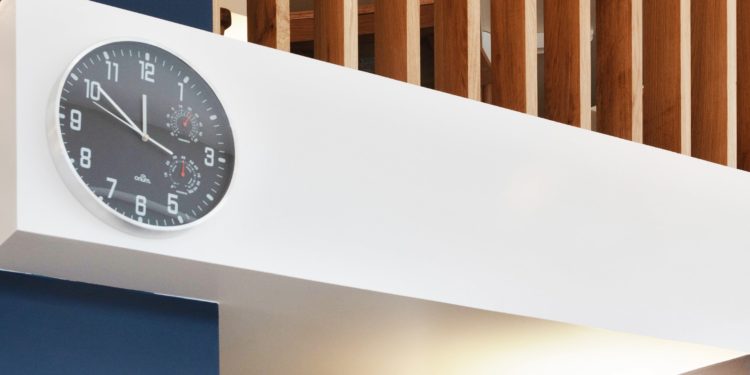As the online retail sales boom continues to grow, e-commerce sales are once again reflecting this trend. Forecasts suggest 2022 online sales could be set to rise by another 14%, following on from a healthy 10% increase in online retail trading figures for 2021. Nevertheless, this welcome growth in orders presents many online retailers and associated providers in their logistics and distribution supply chains with a variety of storage headaches.
Scaling up to handle this continuous surge in trade volumes can be a complex challenge: Online shopping is driving the need for increased storage capacity while, at precisely the same time, other sectors are switching to remote working models, and thus actively seeking to reduce their office space and overall commercial footprint. Consequently, many in the e-commerce supply chain are desperately looking for a smart answer to this storage dilemma which takes account of such considerations.
Commercial mezzanine flooring represents the perfect solution
A mezzanine (sometimes called a balcony or entresol) is a raised platform designed and engineered as a self-supporting structure which offers considerable additional overhead space in an existing commercial building.
Expansion options
Faced with this growth in demand, the e-commerce sector clearly requires extra storage which can be brought on-stream quickly. Yet disruptive factors like the coronavirus pandemic and the ongoing conflict in Eastern Europe have shown established markets can still be vulnerable to instability. In such a climate, planning expensive building alterations to increase storage space, or committing even more funds to purchase new premises, looks very much like a high-risk option.
On the other hand, installing a mezzanine floor to increase the amount of usable space in your existing location is far cheaper solution which is also highly versatile and much quicker to install.
Why install a mezzanine?
Here are just a few reasons:
– to reclaim a significant volume of unused vertical space for commercial purposes,
– to save the expense of building an extension or relocating your business elsewhere,
– to create purpose-built storage to accommodate supply chain fluctuations,
– to add a custom-designed area for specialist equipment or processes,
– to create a flexible, value-for-money facility which can be reconfigured later as your needs change.
A bespoke solution
According to Western Industrial, UK-based mezzanine flooring specialists, clients who wish to make the best use of a new mezzanine platform facility should be ready to play an active part in the pre-production phase of the process. Sketching out a typical installation, the Devon-based experts comment: “At Western Industrial, the first step is always a (free) client consultation. Based on this discussion, our assessment of the most viable options is then communicated as a reasoned set of recommendations. Working closely with the client, we then work systematically through the project details. This includes choosing the most appropriate construction materials as well as optimising the design of the core load-bearing framework of columns and beams. In addition, we consult with the client to agree a site plan detailing the course of the installation – an important document which enables the client to make advance in-house arrangements to minimise any disruption. Finally, we carefully review the project, not only to confirm it meets all the client’s requirements, but also to check that all features are fully compliant with both fire and safety regulations and current building regulations protocols.”
Multi-purpose mezzanines
As cost-efficient space creators, mezzanines are popular across a broad range of industries. This includes sectors such as transport & logistics, retail & manufacturing, medical & healthcare, as well as grocery, automotives, the leisure industry, and many more.
Though many businesses simply want a fast warehousing and storage solution, mezzanine platforms have numerous other applications too. These practical structures are also ideal for adding extra office space or housing archives, as well as for creating all kinds of showrooms, display areas, or visitor centres. Their structural strength, stability and durability means mezzanine solutions are also common in factories and other industrial settings where they can be used for production facilities, workshops to house specialist equipment and processes, or insulated cleanrooms.
Mezzanine platforms are a well-established commercial technology, and as a result, skilled structural engineers can create practical solutions to reclaim extra space even in the most demanding contexts. And working in close collaboration with their business clients, they can produce budget-friendly mezzanine platforms to expand the capacity and meet the commercial needs of a diverse range of enterprises.











































































